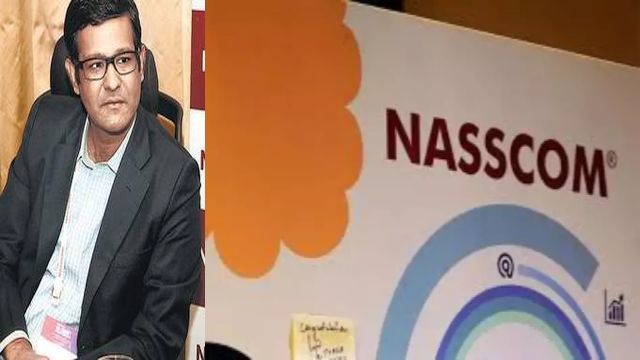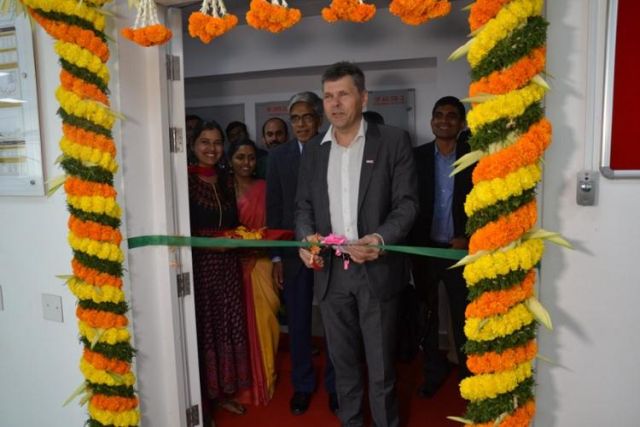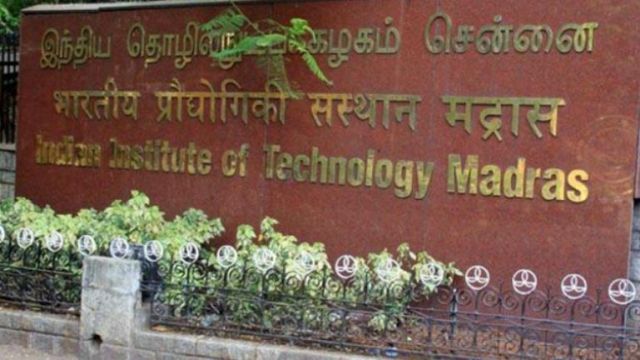
by admin | May 25, 2021 | Markets, Technology
 Mumbai : There has been a spurt in the adoption of Artificial Intelligence (AI) across industries in India and cloud infrastructure and rapid deployment of intelligent Cloud services will further drive AI adoption in the country, Microsoft India said on Wednesday.
Mumbai : There has been a spurt in the adoption of Artificial Intelligence (AI) across industries in India and cloud infrastructure and rapid deployment of intelligent Cloud services will further drive AI adoption in the country, Microsoft India said on Wednesday.
In a white paper titled “Age of Intelligence,” Microsoft said the focus is to create modern mobile infrastructure, skill up the workforce and reduce data costs and cross-industry collaboration, thus extending information connectivity and digital services to the underserved segments of the population.
“Our ambition is to enable a human-centered approach to AI. India is currently at an inflection point in the adoption of AI,” said Anant Maheshwari, President, Microsoft India as the company unveiled the white paper at the Nasscom Technology and Leadership Forum (NTLF) 2019 here.
“Building on the four foundational pillars — enabling digital transformation across industries, forging coalitions for innovation, building a future-ready workforce and creating sustained societal impact — will unlock and accelerate the potential of AI,” Maheshwari added.
The white paper outlines challenges and opportunities with respect to AI and how balanced and forward looking government policies, technological advancements including growing Internet penetration and connectivity will help reap benefits of digital transformation in the years to come.
According to Microsoft, the company is busy democratising AI and is making the technology available on Azure Cloud to empower developers and institutions in solving difficult problems.
“AI enables organizations to make better informed decisions by making it easy to derive insights from data, helping them expand and improve customer engagement and experiences, optimize operations and improve offerings,” read the white paper.
India is digitally ready for a comprehensive AI framework aligned to industries’ long-term strategy.
“With the size of the market and opportunity for growth, it’s imperative to implement AI for India that brings economic, societal and inclusive growth,” Microsoft noted.
—IANS

by admin | May 25, 2021 | Corporate, Corporate Buzz, Interviews, Markets, Technology
 By Bhavana Akella,
By Bhavana Akella,
Bengaluru : As the demand for disruptive technologies like Artificial Intelligence (AI) and Data Analytics grows, shortage of a skilled IT workforce to run them is posing a challenge to the stake-holders, Nasscom, the industry’s apex body, has said.
“There is an urgent need to re-skill about 50 per cent of India’s IT workforce, as demand for it in new technologies remains unmet,” Nasscom’s IT-ITeS (IT enabled Services) Sector Skills Council chief executive Amit Aggarwal told IANS here.
The National Association of Software and Services Companies (Nasscom) is the apex body representing the country’s IT and business process management (BPM) industry.
The demand-supply gap for skills affected the industry’s performance in 2018, due to shortage of 140,000 skilled techies for 500,000 jobs in the industry across verticals.
“Going forward, the industry will face a shortage of 230,000 skilled techies as jobs in AI and Big Data are estimated to be 780,000 by 2021,” Aggarwal pointed out.
In a report titled ‘The Future of Jobs 2018’, the World Economic Forum (WEF) said around 54 per cent of the global workforce had to be re-skilled or up-skilled to work in disruptive and digital technologies spawning the virtual world.
AI, big data analytics and cloud computing will dominate businesses across verticals till 2022, changing job profiles for geeks, while legacy jobs will vanish, the report said.
Admitting that the multi-billion-dollar IT industry had a vital role in creating jobs as well as in churning out the required skilled workforce, Aggarwal said India was well-positioned to bridge the demand-supply gap, as it had a wealth of talent in science, technology, engineering and mathematics (STEM).
“Adoption of new technologies will change the profile of present jobs, which will evolve into higher domains with more automation that pose challenges to the $167 billion Indian IT services industry,” Aggarwal asserted.
One of the challenges is to identify the nature of jobs in future and re-skill the present workforce for the transition to digital work.
As the industry adopts to new technologies spanning AI, machine learning (ML), data analytics, automation, robotics, blockchain, cloud and the Internet of Things (IoT), companies with legacy systems and obsolete workforce face challenges to survive the disruption.
The apex body’s ‘Future Skills’ digital platform, unveiled by Prime Minister Narendra Modi in February 2018, has identified 10 key technologies in which maximum job creation can occur in the IT and IT-enabled Services sectors.
The digital portal makes resources available for techies to hone their skills. According to the platform, technologies which will create new jobs include AI, cyber security, IoT, virtual reality, robotic process automation, big data analytics, blockchain, three-dimension (3-D) printing, cloud computing and social and mobile.
“About 70 job roles were identified across 10 technologies that will require the future workforce to have about 150 varied skills,” Aggarwal said.
Besides training the workforce in new skills, there is a need to include evolving technologies in the curriculum for the students, Aggarwal noted.
The industry body has tied up with state-run premier institutions like the Indian Institute of Technology-Madras to hone the skills of students entering the workforce in the IT sector.
“The industry is spending about Rs 10,000-crore for re-skilling and human resource development,” Aggarwal pointed out. “Making the system agile and flexible can help in preparing the IT workforce for the future,” Aggarwal reiterated.
(Bhavana Akella can be contacted at bhavana.a@ians.in )
—IANS

by admin | May 25, 2021 | Business, Emerging Businesses, Investing, SMEs, Venture Capital
 Chennai : Global technology and services provider Bosch Group on Wednesday inaugurated the Robert Bosch Center for Data Science and Artificial Intelligence (RBC-DSAI) at the Indian Institute of Technology-Madras (IIT-M) with a planned investment of 2.5 million Euros (over Rs 20 crore) over five years.
Chennai : Global technology and services provider Bosch Group on Wednesday inaugurated the Robert Bosch Center for Data Science and Artificial Intelligence (RBC-DSAI) at the Indian Institute of Technology-Madras (IIT-M) with a planned investment of 2.5 million Euros (over Rs 20 crore) over five years.
The mission is to create societal impact through multi-disciplinary interactions with the government, academic, research and industrial collaborators on core challenges in Data Science (DS) and Artificial Intelligence (AI).
“Artificial Intelligence is a core technology for all areas of connected life — from connected mobility to buildings, factories and cities. The expertise of our Indian engineers contributes to expanding the AI skills set of Bosch,” said Michael Bolle, Member of Bosch’s Board of Management.
The centre will undertake foundational research in many areas of AI and Data Science, namely deep learning, reinforcement learning, network analytics, interpretable machine learning (ML), and domain aware AI.
The areas of activity include research projects, knowledge management and dissemination, outreach projects, and setting up collaborative facilities and laboratories.
“The centre’s mandate requires interaction with industry and other universities, including international student and faculty exchanges. The objective is to advance scientific innovation for societal benefit,” said Professor Bhaskar Ramamurthi, Director, IIT-Madras.
India is one of four locations of Bosch Centre for AI and the company is investing some 300 million euros until 2021 for such centres across the world.
“Bosch has funded two important technology areas with Cyber Physical Systems and Data Sciences & AI at IISc (Indian Institute of Science) and IIT-M.
“By working together and conducting aligned R&D activities, they could accelerate major breakthroughs which will have wider societal impact,” says Dr Vijendran Venkoparao, Head of technology strategy and university relations at Robert Bosch Engineering and Business Solutions.
—IANS

by admin | May 25, 2021 | Entrepreneurship, Markets, News, Startup Basics, Technology
 Chennai : The Indian Institute of Technology Madras (IIT-M) on Friday launched a start-up to prepare the workforce for the advent of the Artificial Intelligence (AI) age by training students at nominal costs.
Chennai : The Indian Institute of Technology Madras (IIT-M) on Friday launched a start-up to prepare the workforce for the advent of the Artificial Intelligence (AI) age by training students at nominal costs.
The start-up “PadhAI” offers an affordable hands-on course on ‘Deep Learning’ which is the most successful sub-field of AI.
It is open to all students, faculty and professionals with a basic background in mathematics and Python.
The fee for students and faculty is Rs 1,000 and for working professionals Rs 5,000.
The start-up will also create AI-driven apps by collaborating with Small and Medium Enterprises and the industry and generate value for the Indian economy.
“The Indian IT industry has gone through several waves of technology and survived by upskilling. The current wave of AI is very different. It requires both mathematical insight and hands-on experience,” Mitesh Khapra, Assistant Professor at IIT-Madras, said in a statement.
“We need courses that strike the right balance between these two. Only then will India be able to produce visible products and services in the AI age,” he added.
Every year, the top performing students from courses on PadhAI will be invited to a summer garage — an AI residency programme at IIT-M Research Park where they can work on research, tackle problems of societal impact, or find solutions to commercial value.
The four-month course comprises 80 hours of lecture content and requires equivalent time in solving assignments. It will involve monthly contests and a capstone challenge that trains participants to build an app that works like Google Lens for a few Indian languages.
The course will begin from February 1. Registrations for the course are open until January 24.
—IANS

by admin | May 25, 2021 | Branding, Business, Emerging Businesses, Finding Customers, Markets, Online Marketing, Sales, SMEs, Social Media, Technology
 By Gokul Bhagabati,
By Gokul Bhagabati,
Bengaluru : With a wide range of Machine Learning (ML) and Artificial Intelligence (AI) tools at its disposal, Amazon Web Services (AWS), the Cloud arm of online retail giant Amazon, is busy helping its customers in India, bringing to their doorsteps innovative solutions that address the challenges they face.
Amazon Internet Services Private Limited (AISPL), the Indian subsidiary of the Amazon Group that undertakes the resale and marketing of AWS Cloud services in India, brought to the country earlier this year a digital innovation programme headed by Madhusudan Shekar.
“In a heterogeneous country like India, the scope of innovation is tremendous,” Shekar, Head of Digital Innovation at AISPL, told IANS here, pointing out the diversity of needs in a country of over 1.2 billion people.
According to him, while start-ups are by nature quite innovative in their approach, the risk of inertia to innovation seeping in is higher in large enterprises.
“But large enterprises are always looking for innovations in areas such as optimising operational costs. We can help them find innovation solutions in these areas too,” Shekar noted in an interview on the sidelines of the Amazon AI Conclave held here last week.
“With the availability of a wide range of AI, ML, analytics and Internet of Things (IoT) tools and pre-trained models with AWS, the cost and time required for innovation come down drastically,” he explained, adding that businesses just need to fine-tune these models according to their needs, thereby saving time spent on building them from scratch.
Among the start-ups that showcased their innovative solutions at the event was ChironX, a Gurugram-based company which is using AI and Deep Learning for medical diagnostics.
The AI model that the company has built analyses retinal fundus images in seconds to detect several diseases, including diabetic retinopathy, hypertensive retinopathy, age-related macular degeneration and diabetic macular edema.
“Our solution is now used by several hospitals in India,” said Rito Maitra, Vice President for Product at ChironX, adding that its data infrastructure needs are supported by AWS.
AWS, which is betting big on AI and ML for its growth, has over hundreds and thousands of active customers in the country.
“Every customer conversation that we have today has an element of AI and ML in it — whether they are enterprises, start-ups or other organisations,” Navdeep Manaktala, Head of Business Development, AISPL, told IANS, adding that over 85 per cent of what AWS does is driven by customer needs.
AWS has a broad portfolio of AI and ML services in areas such as text-to speech conversion, image analysis and document analysis, among others.
Shaadi.com, one of the world’s largest online matrimonial services, and Woo, a dating app, are among the company’s two biggest customers from India that use Amazon “Rekognition” — a Deep Learning-based image-analysis service.
The matrimonial website believes that with the use of “Rekognition”, it could reduce the time it takes for a picture to appear on a user’s profile by 95 per cent as a lot of time spent on manual moderation of the picture to see whether it matches the description in the profile can be cut.
“Amazon Rekognition APIs (application programming interface), particularly ‘DetectFaces’, provide rich image metadata that we can use to apply our business-specific quality guidelines to. Utilising information such as number of faces, size of faces, and estimated age range, we were able to remove photo-level manual curation work entirely,” said Sumesh Menon, Co-Founder of Woo.
Manaktala said that ML is also helping AWS better understand the customer needs, helping them secure their data. “The pace of innovation, in spite of our size, is tremendous,” Manaktala added.
With services such as Amazon “SageMaker”, the company also allows developers and data scientists to build, train and deploy Machine Learning models.
It also has what is known as AWS Partner Network (APN), a global programme focused on helping APN Partners build successful businesses or solutions by providing business, technical, marketing and go-to-market support.
Overall, the company offers over 125 fully featured services for compute, storage, databases, networking, analytics, ML and AI, IoT, mobile, security, hybrid, virtual and augmented reality (VR and AR), media, and application development, deployment, and management.
(Gokul Bhagabati can be contacted at gokul.b@ians.in)
—IANS

 Mumbai : There has been a spurt in the adoption of Artificial Intelligence (AI) across industries in India and cloud infrastructure and rapid deployment of intelligent Cloud services will further drive AI adoption in the country, Microsoft India said on Wednesday.
Mumbai : There has been a spurt in the adoption of Artificial Intelligence (AI) across industries in India and cloud infrastructure and rapid deployment of intelligent Cloud services will further drive AI adoption in the country, Microsoft India said on Wednesday.



